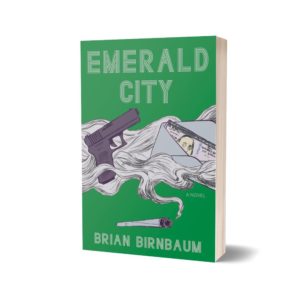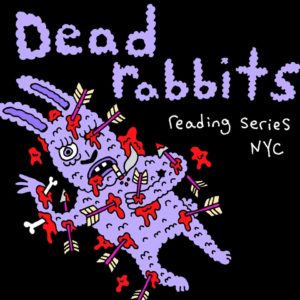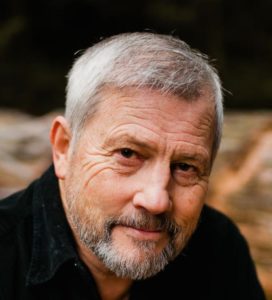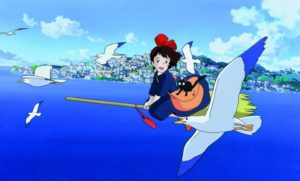Stanley Flink: Due Diligence and the News
February 25, 2020 by David
Filed under Non-Fiction, WritersCast
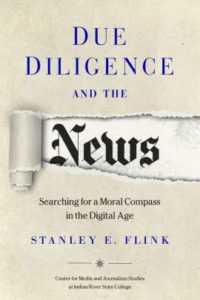 Due Diligence and the News: Searching for a Moral Compass in the Digital Age – Stanley Flink – Center for Media and Journalism Studies at Indian River State College – paperback – 978-0-578-60291-2 – 214 pages – $19.95 – 12/7/2019 – ebook editions available at lower prices.
Due Diligence and the News: Searching for a Moral Compass in the Digital Age – Stanley Flink – Center for Media and Journalism Studies at Indian River State College – paperback – 978-0-578-60291-2 – 214 pages – $19.95 – 12/7/2019 – ebook editions available at lower prices.
I was recently introduced to Stan Flink by a mutual friend. I’d known of him for many years as he was a Yalie of some renown, a journalist for many years who later became the editor of the Yale Alumni Magazine and taught journalism at Yale and at other institutions of higher learning.
With his long experience, as a reporter, editor and lecturer, Stan knows and understands the importance of the news media to the functioning of American democracy. Still active at 95 years of age, Stan has worked as a journalist and editor for many years, in many different venues and platforms.
Flink recognizes that democracy has no life without truth. In fact, democracy is predicated on there being an educated and active citizenry, that tries to know as much as possible the truth and nature of events and human affairs. In Due Diligence and the News, Stan reviews, succinctly and gracefully, the relationship between the press and American civic life from colonial days to the digital age. In a series of interlocked essays, he demonstrates succinctly and clearly that while opinions may differ, facts are not optional. He discusses the important question of how it can be possible to assure publication based on verifiable facts without curtailing differing opinions. This is a central issue for us all to face – understanding and resolving the difference between fact and opinion. We need both elements to have equal weight in our political discourse, and we cannot dismiss either.
Some of the questions he raises include:
How can the media restore the trust of the reading/listening public?
Is it ever possible for the news media to create mechanisms, like the Hutchins Commission, that can make workable rules of self-governance and professional standards for itself?
Can government—international, national, state or local—serve as a watchdog on the media without violating the Constitution?
Can the news media, assuming it is truthful, do less than full due diligence in commenting on a public official?
These questions are addressed thoughtfully throughout this well-written book, but no one, not even Stan, can answer them conclusively and for all situations. Ultimately, as Stan takes a look forward into the digital age, the age of learned intelligence, he poses what may be as yet unanswerable questions about the future of the press in our fast-changing society. I think we have alot to learn from this book and the questions that Stan provides are ones we should be discussing far and wide as we try to heighten the importance of truth among our fellow citizens.
STANLEY FLINK grew up in a New Jersey. He entered Yale University a few months after Pearl Harbor and soon after enlisted in the Army. After service in the Pacific, he returned to Yale to continue his education. He graduated in 1948 and became a correspondent for Time, Inc. in New York and then in California, where he reported on such people as William Randolph Hearst, Richard Nixon, and the first appearances of Marilyn Monroe.
In 1958 he transferred to television news at NBC and later CBS. In 1962 he took up a series of assignments in London where he lived for eight years. In 1972 he returned to Yale to become the founding director of the Office of Public Information. From 1980 to 2010 he taught an undergraduate seminar called “Ethics and the Media.” In 1994 he was awarded the Yale Medal.
Stanley Flink is the author of many articles and profiles, and among his books are a novel called But Will They Get It In Des Moines? about television, published by Simon & Schuster; and Sentinel Under Siege, an historical analysis of freedom of the press in America, published by Harper Collins.
Mr. Flink and his second wife (of 45 years) Joy, live in a retirement community in North Branford, Connecticut, where he still lectures on the media. Through it all, he has never lost his deep affection for golden retrievers. He celebrated his 95th birthday in May, 2019.
Watch this video of Stan talking about the ethics of journalism here.
Support independent bookselling by buying the book online from our friends at R.J. Julia Booksellers.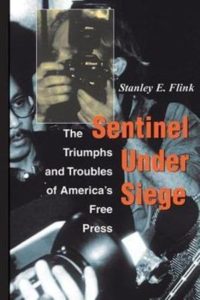
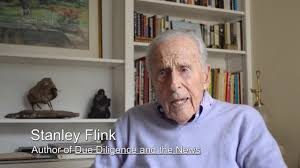
Podcast: Play in new window | Download
Publishing Talks: David Wilk interviews Brian Birnbaum of Dead Rabbits
December 31, 2019 by David
Filed under PublishingTalks, The Future
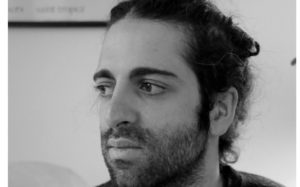 Publishing Talks began as a series of conversations with book industry professionals and others involved in media and technology, mostly talking about the future of publishing, books, and culture. As every media business continues to experience disruption and change, I’ve spent time talking with some of the people involved in our industry about how publishing might evolve as it is affected by technology and the larger context of culture and economics.
Publishing Talks began as a series of conversations with book industry professionals and others involved in media and technology, mostly talking about the future of publishing, books, and culture. As every media business continues to experience disruption and change, I’ve spent time talking with some of the people involved in our industry about how publishing might evolve as it is affected by technology and the larger context of culture and economics.
Some time back, this interview series broadened to include conversations that go beyond the future of publishing. In an effort to document the literary world, I’ve talked with a variety of editors and publishers who have been innovators and leaders in independent publishing in the past and the present, and continue to explore the ebb and flow of writing, books, and publishing in all sorts of forms and formats, as change continues to be the one constant we can count on.
There are many reasons to establish an independent literary venture, but usually the urge is based in the most basic impulse to publish, i.e. make public, work that matters, either to an individual, or a group of writers clustered around a particular geography or literary pursuit. Dead Rabbits is one such new venture. Its founders began by creating a poetry reading in a place that was underserved. The Dead Rabbits Reading Series was founded in 2014 by Devin Kelly (Sarah Lawrence MFA ’15), Katie Longofono (Sarah Lawrence MFA ’14), and Katie Rainey (Sarah Lawrence MFA ’14) as a way of providing a place for an emerging young New York City literary scene to exist and thrive in Upper Manhattan.
Out of that extremely successful undertaking – with a long list of readers with whom I confess I was not familiar – Katie Rainey, Jonathan Lee Kay and Brian Birnbaum subsequently founded Dead Rabbits Books (“Books that Matter”). Their first publication is Brian Birnbaum’s novel, Emerald City, with several more books planned and ambitions to establish a long term self sustaining publishing venture.
I’ve talked to many folks in publishing who have spent years at their work and thought it would be a useful counterpoint to talk to someone new, on the other end of the spectrum, is just beginning the struggle to publish and reach readers in new ways that have continued to emerge over the past few years.
Dead Rabbits is emblematic of a new generation of writers and editors that is in many ways wrestling with the same challenges that have faced every generation before them, but the current environment is also very different than it has been at any time in the past. Social media creates unmatched opportunities for communication and at the same time a vast array of issues for any new enterprise trying to be discovered. It seems there are more poets and independent presses than ever, all competing for an audience of readers for whom poetry is yet another option for consumption alongside every other media form. Which makes this a very interesting time indeed. Good luck to Dead Rabbits, (in all their various literary ventures) – this is a group of young literary adventurers who seem to have some very good ideas as well as access to some very good writing. Anyone interested in the current literary scene should listen to this podcast.
Podcast: Play in new window | Download
Karl Marlantes: Deep River, a Novel
November 19, 2019 by David
Filed under Fiction, WritersCast
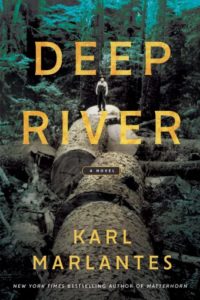 Deep River – Karl Marlantes – 978-0-8021-2538-5 – Atlantic Monthly Press – Hardcover – 736 pages – $30 – July 2, 2019 – ebook version widely available at lower prices.
Deep River – Karl Marlantes – 978-0-8021-2538-5 – Atlantic Monthly Press – Hardcover – 736 pages – $30 – July 2, 2019 – ebook version widely available at lower prices.
“Deep River seems a work born from Willa Cather by way of Upton Sinclair. But this new book is its own animal, and it’s something of a masterpiece… In Deep River, [Aino] takes her place beside Antonia Shimerda as one of the great heroines of literature.”—BookPage (starred review)
Several years ago I discovered Karl Marlantes’ first novel, Matterhorn, which is a loosely autobiographical novel about the Vietnam War, in which Karl served as a Marine lieutenant. I think that is one of the best war novels I have ever read and was pleased to interview Karl about that book.
That book was followed by a nonfiction book called What it is Like to Go to War, which I also read and was affected by. What I said in 2011 still holds true: this book is a deeply thoughtful and moving work of nonfiction about the nature and meaning of war, and what it means to the individual warriors who participate who fight, as well as to the society that gives them that responsibility.
It took Marlantes almost thirty years to write and rewrite Matterhorn. Almost ten years after he completed that book, he has now turned in a completely different book, an historical novel set in the early 1900s, starting in Russian occupied Finland and moving to the Pacific Northwest. The three Koski siblings, Ilmari, Matti, and the politically radical young Aino, flee Russian oppression and come to the United States.
They join a community of other Finns in the logging area in southern Washington, during a time when massive trees of the old growth forest are being harvested by hard working men and dangerous technology. It is fertile ground for the establishment of radical labor movements like the IWW (Industrial Workers of the World, also known as the Wobblies). The two Koski brothers build their lives in this environment amid danger and many challenges, while Aino, just one of the book’s many also hard working independent women, works to build a union in an environment where organized labor is not welcomed by the logging industry or the power structures of the day.
Karl has built this novel following the structure and characters of the great stories of the Finnish oral tradition, written down in the nineteenth century as the Kalevala. It is a truly magisterial novel that weaves together so many strands of American and immigrant cultures, documents the struggles of the early twentieth century in the great forests of the Pacific Northwest, and shows us how human beings find a way to make meaningful lives despite the harshest challenges. Nothing comes easy for the Koskis their friends and families, but everything about them is redemptive and strong. It’s impossible to read this book and not be moved.
Reading Deep River is a commitment – it’s a long book – and there are inevitably times when it becomes difficult to keep track of the whole story and the many compelling characters in the book. That is not a criticism. The book is gripping, and well worth the time and attention of the reader. And it is impossible not to read it in the context of our current political circumstance. Reading about the sacrifices made by workers in the early twentieth century, to make advances for labor that are now taken for granted, and imagining their struggles as evidenced by the characters in this book, who are so thoroughly human in their differences and outlooks, personalities and beliefs, brings forth a range of thoughts about what has become of America today. We live in a world that others made great sacrifices for, and have somehow managed to avoid making sacrifices of our own. The people of Deep River as imagined by Karl Marlantes, deserve better from us.
I had the great pleasure to interview Karl in New Haven in a building on the Yale campus, where he was visiting during his book tour.
Karl Marlantes graduated from Yale University and was a Rhodes Scholar at Oxford University, before serving as a Marine in Vietnam, where he was awarded the Navy Cross, the Bronze Star, two Navy Commendation Medals for valor, two Purple Hearts, and ten air medals. He is the author of the novel, Matterhorn and a work of nonfiction, What It Is Like to Go to War. He lives now in Washington State.
Buy Deep River from RJ Julia here.
Podcast: Play in new window | Download
Publishing Talks: David Wilk interviews writer and entrepreneur Rachel Lehmann-Haupt
November 5, 2019 by David
Filed under Publishing History, PublishingTalks
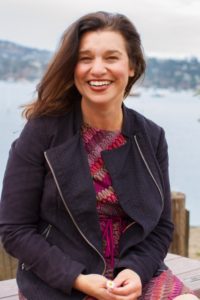 Publishing Talks began as a series of conversations with book industry professionals and others involved in media and technology, mostly talking about the future of publishing, books, and culture. As every media business continues to experience disruption and change, I’ve been talking with some of the people involved in our industry about how publishing might evolve as it is affected by technology and the larger context of culture and economics.
Publishing Talks began as a series of conversations with book industry professionals and others involved in media and technology, mostly talking about the future of publishing, books, and culture. As every media business continues to experience disruption and change, I’ve been talking with some of the people involved in our industry about how publishing might evolve as it is affected by technology and the larger context of culture and economics.
Rachel Lehmann-Haupt is best known for being an expert on the future of family life, career timing, and the influence of science and technology on fertility, pregnancy and family.
She is the author of In Her Own Sweet Time: Egg Freezing and the New Frontiers of Family. Her articles have been featured in a wide range of magazines and websites.
Rachel graduated with a degree in English literature from Kenyon College, and has a Masters in Journalism from the Graduate School of Journalism at the University of California, Berkeley. At UC Berkeley, she apprenticed under Clay Felker, the founder of New York Magazine. She has spoken on numerous panels at bookstores, hospitals and corporate events, and has delivered keynotes at universities.
Rachel’s newest venture, StoryMade Studios, a content development and editorial production studio was what introduced me to her work and caused me to want to talk to her for this Publishing Talks podcast series.
Much like my own work with content creators, and similar to the way movie studios work, Rachel builds teams that include writers, designers, developers, and video producers, and then manages the creation and editing of all the elements of a digital media story. StoryMade Studios focuses on health, parenting, advanced reproductive technology, neuroscience, women, sustainability, and food.
In recent years, Rachel has been a senior content strategist and strategic advisor for a number of technology start-ups, media properties, and non-profits including TED Books, The Dwell Store, Wired Magazine, BabyCenter.com, The Women 2.0 Conference, Code for America, Bridge Housing, Shebooks, and Dr. Dean Ornish/Healthways.
It was a pleasure to spend some time with her for a lengthy and wide ranging conversation when she was recently in New York City for a visit. I wanted to talk to her about her work as a writer and as a facilitator of book and other content projects, but in particular, I thought it would be really interesting to talk to Rachel about what it was like to have grown up as the child of two writers in the hothouse environment of New York City literary culture and how it influenced her own professional and personal life.
Thank you Rachel for a great conversation!
You can buy her book from RJ Julia here.
Visit Rachel’s own website here. Read about her book,In Her Own Sweet Time. 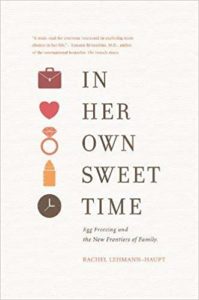
And about Story Made Studio here.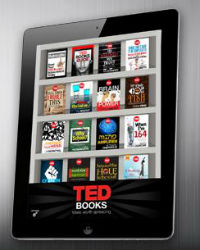
Podcast: Play in new window | Download
Thom Hartmann: The Hidden History of the Supreme Court and the Betrayal of America
October 22, 2019 by David
Filed under Non-Fiction, WritersCast
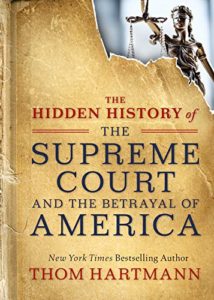 The Hidden History of the Supreme Court and the Betrayal of America – Thom Hartmann – ISBN 9781523085941 – Berrett-Koehler Publishers – Paperback – 192 pages – $15.00 – October 1, 2019 – ebook versions available at lower prices
The Hidden History of the Supreme Court and the Betrayal of America – Thom Hartmann – ISBN 9781523085941 – Berrett-Koehler Publishers – Paperback – 192 pages – $15.00 – October 1, 2019 – ebook versions available at lower prices
“Hartmann delivers a full-throated indictment of the U.S. Supreme Court in this punchy polemic.” —Publishers Weekly
This is a really important (and very short) book – so you have no excuse not to read it – no matter how busy you are.
Thom Hartmann has been a popular progressive radio host for years. In this book, he carefully and succinctly explains how the Supreme Court has gone far beyond its actual Constitutionally derived powers and provides some cogent guidance on how we can change it.
In the beginning, and until 1803, the Supreme Court was simply viewed as the final court of appeals in the judicial system, the branch of government with the least power of the three set forth in the Constitution. So we have to find out how did the concept of judicial review start, and as Hartmann points out, it began with the battle between the Federalists and Anti-Federalists, with the now well-known case known as Marbury v. Madison.
It is Hartmann’s view, and he argues persuasively, that it is not the role of the Supreme Court to decide what the law is, but rather the duty of the people through the legislative branch. He summarizes the history of the Supreme Court, giving some important examples of cases where the Supreme Court appears to have overstepped its constitutional authority.
So much of our history and beliefs about this country are mystified by a sort of glorification of a romanticized and suspect view of the Constitution and the powers of our branches of government. The Supreme Court today reflects the concerted effort of a small segment of society to control and reduce democratic principles and practices that would harm their interests. Hartmann’s book is an essential and very handy guide for anyone who would like to explore what we can do to rein in the power of the courts and increase democracy in our country. If you read Nancy McLean’s Democracy Unchained, as I hope you have, or if you are simply interested in both protecting and expanding democracy in our country, then reading this book is essential.
Buy the book from RJ Julia bookstore here.
Thom Hartmann is a progressive syndicated talk show host whose shows are available in over a half-billion homes worldwide. He’s the New York Times bestselling, 4-times Project Censored Award-winning author of 24 books in print. His radio show is syndicated on for-profit FM and AM radio stations nationally, on non-profit and community stations nationwide by Pacifica, across the entire North American continent on SiriusXM Satellite radio, on cable systems nationwide by Cable Radio Network (CRN), via subscription audio podcasts, worldwide through the US Armed Forces Network, and through the Thom Hartmann iOS and Android apps. Visit Thom’s own website to learn more about his work and many useful books. 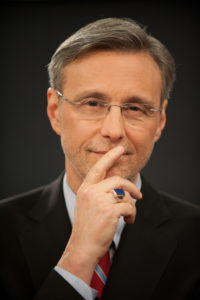
Podcast: Play in new window | Download
Publishing Talks: David Wilk interviews poet and editor Tom Montag
October 8, 2019 by David
Filed under Publishing History, PublishingTalks
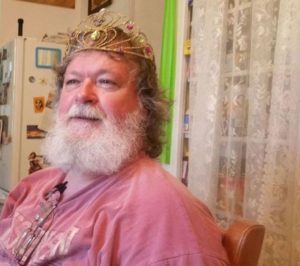 Publishing Talks began as a series of conversations with book industry professionals and others involved in media and technology, mostly talking about the future of publishing, books, and culture. As every media business continues to experience disruption and change, I’ve been talking with some of the people involved in our industry about how publishing might evolve as it is affected by technology and the larger context of culture and economics.
Publishing Talks began as a series of conversations with book industry professionals and others involved in media and technology, mostly talking about the future of publishing, books, and culture. As every media business continues to experience disruption and change, I’ve been talking with some of the people involved in our industry about how publishing might evolve as it is affected by technology and the larger context of culture and economics.
I’ve expanded this interview series to include conversations that go beyond the future of publishing. I’ve talked with editors and publishers who have been innovators and leaders in independent publishing in the past and the present, and will continue to explore the ebb and flow of writing, books, and publishing in all sorts of forms and formats, as change continues to be the one constant we can count on.
Tom Montag is a poet, critic, editor and publisher whom I have known for many years. I love his biography, which emphasizes his pure identity as a midwesterner. Unlike so many Americans, he has lived in the midwest for his entire life, and his work identifies deeply with where he lives. He does not need to declaim his role as a true poet of place.
Tom was somewhat famously the editor of Margins: A Review of Little Magazines and Small Press Books during the 1970s, was active in the Milwaukee literary scene, and was an editor and feature writer for Wisconsin’s Fox River Patriot during its heyday from 1977 to 1979. With his wife Mary, he edited and published the Wisconsin Poet’s Calendar from 1982 to 1984, which was subsequently handed to the Wisconsin Fellowship of Poets to continue.
Tom spent the better part of his work life at the family owned Ripon Community Printers in Ripon, Wisconsin. During those years, he wrote pithy sayings from a character he called Ben Zen. Four collections of the BZ poems were published between 1992 and 2000.
His memoir, Curlew: Home is about his first fourteen years spent on a farm outside Curlew, Iowa, and about his sense of loss in revisiting the community forty years later. Kissing Poetry’s Sister gathered eleven of Montag’s essays about writing and being a writer, including his long piece on creative nonfiction.
After he retired from his Ripon job, he spent five years creating “Vagabond in the Middle,” an attempt to determine what makes us middle western. He has been collecting stories from residents of twelve communities across the middle west, true stories of their families, their lives, and their connections to the places they inhabit.
Tom and I have worked together on publishing projects at Woodland Pattern in Milwaukee, and we’ve presented together there and at the Lorine Niedecker festival in Fort Atkinson, Wisconsin. Tom’s writing and editing has meant a great deal to me over the years, we are linked in so many ways, yet have such different backgrounds, and it was a great pleasure to speak to him here about his lifetime of work in writing and publishing, though to be sure, we barely scratched the surface of what we could have talked about.
SOMETIMES
Sometimes
in the weeds
a loveliness.
This moment
among all
the moments.
Rain when it’s
needed. Tom,
stop wanting
anything more.
MY FATHER,
holding the Y
of willow
lightly
in his hands,
walks the land.
The willow
leaps
for something
we do not
see: Here,
my father says
to the man,
drill here.
Tom is the author of many books and has edited anthologies as well. His most recent large scale collection is In This Place: Selected Poems 1982-2013.
There are two really good written interviews with Tom in the Wombwell Rainbow and the Mocking Heart Review. You can learn more about Tom and his work here and you can keep up with his prodigious output of poetry at his outstanding blog The Middle Westerner where you will regularly find him posting poems that will endure.
“Exploring the heart of the country; or, as Nancy Besonen has said, “Tom Montag is defining the character of the Midwest – one character at a time.”
Thanks Tom, for being who you are.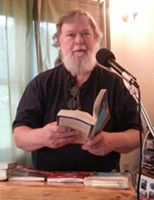
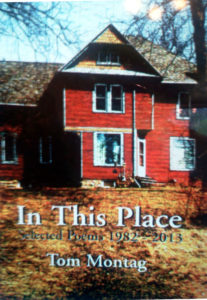
Podcast: Play in new window | Download
Cuong Lu: The Buddha in Jail – Restoring Lives, Finding Hope and Freedom
July 18, 2019 by David
Filed under Non-Fiction, WritersCast
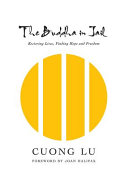 The Buddha in Jail: Restoring Lives, Finding Hope and Freedom – Cuong Lu – OR Books – paperback – 112 pages – 978-1-682191-84-2 – $18.95 – April 2, 2019 – ebook versions available at lower prices.
The Buddha in Jail: Restoring Lives, Finding Hope and Freedom – Cuong Lu – OR Books – paperback – 112 pages – 978-1-682191-84-2 – $18.95 – April 2, 2019 – ebook versions available at lower prices.
Foreword by Roshi Joan Halifax.
I’ve studied and read and been around Buddhist teachings for a number of years. I’ve always been attracted to Buddhism’s psychological approach and to its ideas about self, being and letting go of suffering, though I have never practiced Buddhist meditation enough to attain a meaningful experience of inner peace. Reading Cuong Lu’s short book was a powerful experience for me, because unlike many books about Buddhism, it is so practical, and so filled with lived experience. Socially engaged Buddhism is extremely powerful, as it brings concepts of inner peace and understanding into play with the actual lived experience of people and works with their actual suffering. It is not theory, but practice. Cuong Lu lives that experience and brings it to us in a really meaningful way.
Cuong Lu was a Vietnamese refugee who arrived in Holland as a young boy, and struggled to learn who he was in a country that was very foreign to him, after many traumatic experiences. He discovered Buddhism and spent a number of years studying with the renowned Vietnamese Buddhist teacher, Thich Nhat Hanh, and in 1993 was ordained a monk at Hanh’s community, Plum Village in France. In 2000, he was recognized as a teacher in the Lieu Quan line of the Linji School of Zen Buddhism and then spent six years ministering to inmates in Dutch prisons as a prison chaplain.
This book is a collection of 52 vignettes – the stories and teachings in which Cuong Lu shares insights into the prisoner’s mindset, and by extension all of us, those who are physically imprisoned, and of course, those many others of us who are psychologically imprisoned.
As a prison chaplain, Cuong discovered that when the men inside allowed themselves to feel their pain – connecting to their buried and unacknowledged feelings, that knowing and feeling the truth enabled them to find inner sources of strength they had never experienced previously. When these prisoners felt themselves to be touched, and accepted without judgment, understood in a pure way, it transformed their sense of self, with the result that they were able to change their own attitudes, self images, and ultimately their behavior and relationships to others.
Ultimately, this book is not about the prisoners. It’s about each of us who read the book. We limit our ideas of ourselves, of self and confused projection for reality. We don’t understand or recognize what freedom and happiness are, that they are states we can experience deeply and thoroughly through a fuller understanding of the nature of our beings and relationship to self and universe. It will always require a process to attain this kind of understanding, but when we do the work of meditation and inner viewing, we discover the freedom and happiness already within. This book can be viewed as an introduction to a way of living and being that might change our world for the better.
Speaking with Cuong Lu, it is easy to understand why he is such a great teacher. He is centered, calm and clear, and able to explain easily the sometimes complex and confusing system of understanding that Buddhism represents. It was a great pleasure for me to have the opportunity to speak with him about this book and his experiences.
“In The Buddha in Jail, Cuong Lu demonstrates how to be in a helping relationship without getting caught in roles. As a prison chaplain, he did not attach to the idea of being a helper, or even of ‘helping.’ He sat quietly, deeply present with each inmate, and saw each of them as a soul, not just their personality or their troubled past. By dwelling in love with each person, accepting them without judgment, one by one they transformed, and their recidivism was close to zero. I congratulate Cuong Lu for the depth of his prison ministry and this beautiful book.” —Ram Dass, author of Be Here Now and Walking Each Other Home: Conversations on Loving and Dying
“To free ourselves, we have to unlock the doors from within. Chaplains like Cuong Lu play an essential role in freeing those in prison from their inner demons, offering guidance, support, and loving kindness, teaching stillness and self-reflection, learning to connect with their fierce and loving hearts. I highly recommend The Buddha in Jail, a good read and a great resource for understanding prisoners and for finding the keys to the prisons in our own minds.”
—Spring Was-ham, author of A Fierce Heart: Finding Strength, Courage, and Wisdom in Any Moment
Cuong Lu, Buddhist teacher, scholar, and writer, was born in Nha Trang, Vietnam, in 1968. He majored in East Asian studies at the University of Leiden, and in 1993 was ordained a monk at Plum Village in France under the guidance of Thich Nhat Hanh. In 2000, he was recognized as a teacher in the Lieu Quan line of the Linji School of Zen Buddhism. In 2015, he received a master’s degree in Buddhist Spiritual Care at Vrije University in Amsterdam. Lu is the founder of Mind Only School, in Gouda, the Netherlands, where he teaches Buddhist philosophy and psychology, specializing in Yogachara Buddhism combined with the Madhyamaka (Middle Way) School of Nagarjuna.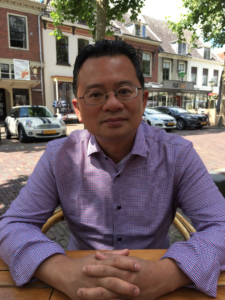
Podcast: Play in new window | Download
Maureen Owen and Barbara Henning reading in Tucson, Arizona
March 3, 2019 by David
Filed under AuthorsVoices
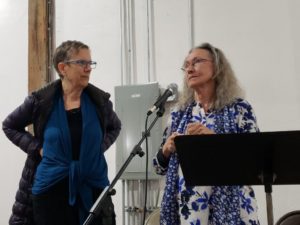 What a great trip! Starting January 18, 2019, with a reading at McNally Jackson Bookstore in Brooklyn, New York, poets Maureen Owen and Barbara Henning, started a cross country journey together (you can view their trip itinerary here).
What a great trip! Starting January 18, 2019, with a reading at McNally Jackson Bookstore in Brooklyn, New York, poets Maureen Owen and Barbara Henning, started a cross country journey together (you can view their trip itinerary here).
Appropriately, their story and journey began in Brooklyn, where Barbara lives, and this amazing cross-country jaunt ends in Denver two months later, where Maureen lives.
The two writers have been blogging about their adventure here – their writing is terrific and fun, it is always fresh and lively, truly poets’ reportage, and reading their travel log will make you feel like you are along for the ride with them. They are having alot of fun and meeting and talking with some wonderful people along the way. They are getting to see some beautiful parts of our country too. Their two months on the road will feature 16 public events, and innumerable anecdotes and stories. It’s really fun to follow along with them as they travel, and when they are done, this will make a really interesting book.
I had the good fortune to be in Tucson, Arizona, when the two writers arrived there on February 14. Maureen is an old friend and colleague, so it was wonderful to get together with her, and to meet Barbara for the first time. When I went to hear them read for the POG Poetry reading series at the Steinfeld Warehouse Community Art Center, 101 West 6th Tucson on Saturday, February 16, and I recorded the event for this Authors Voices series here on Writerscast.
Local writer Steve Salmoni introduced the event. Poet and publisher (Chax Press) Charles Alexander introduced Maureen, and artist Cynthia Miller introduced Barbara, who lived in Tucson for a few years and has many friends there still.
It was a great event, and a wonderful opportunity to hear two terrific writers, both of whom engage with their audience and their writing. I’ve known Maureen for a long time, and believe she is one of the best poets of our time. Getting to hear Barbara Henning was a treat for me, as she is also a terrific writer of both poetry and fiction. I’m very pleased to have the opportunity to present this reading here.
Poet Maureen Owen was born in Minnesota, lived and worked in New York City and Connecticut, and has been living in Denver for a number of years, where she has long taught at nearby Naropa University. She was the founder of Telephone magazine and Telephone Books, worked at the Poetry Project in NYC, and is the author of a number of wonderful collections of poems.
Barbara Henning is a poet and fiction writer, born in Detroit, who has lived mostly in New York and Tucson since the early eighties. Aside from being the author of a number of books of poetry and fiction, she was also the editor of a book of interviews, Looking Up Harryette Mullen, and The Selected Prose of Bobbie Louise Hawkins. She is professor emeritus at Long Island University, where she taught for many years.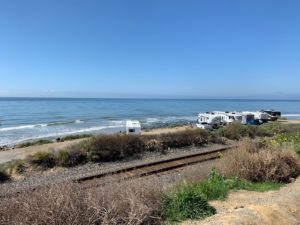
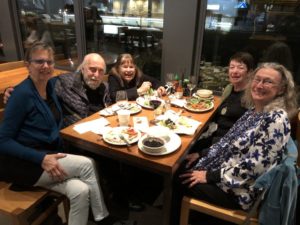
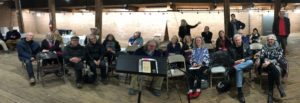
Podcast: Play in new window | Download
Susan Napier: Miyazakiworld: A Life in Art
February 20, 2019 by David
Filed under Non-Fiction, WritersCast
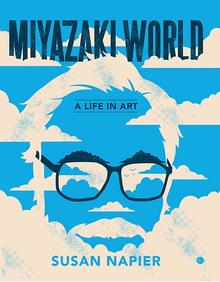 Miyazakiworld: A Life in Art – Susan Napier – 9780300226850 – Yale University Press – Hardcover – $30 – September 4, 2018 — 344 pages – illustrated – ebook versions available at lower prices
Miyazakiworld: A Life in Art – Susan Napier – 9780300226850 – Yale University Press – Hardcover – $30 – September 4, 2018 — 344 pages – illustrated – ebook versions available at lower prices
If you don’t know about Miyazaki and his spectacular animated films, I recommend you immediately seek out and watch at least two or three of the best of his films by way of introducing yourself to one of the most original and influential cultural figures of the post WWII era.
And this book, Miyazakiworld: A Life in Art, will be your guide to this creative genius’s oeuvre. Susan Napier brilliantly summarizes and analyzes Hayao Miyazaki’s life and work. She reveals much about the external influences on his work, his own particular life during and after World War II in Japan, and explores his cultural impact on Japan and the rest of the world, particularly the United States. Of course, if you are already familiar with Miyazaki, and have absorbed some or all of his incredible work, this book will illuminate much about the creator that you did not know before.
A thirtieth-century toxic jungle, a bathhouse for tired gods, a red-haired fish girl, and a furry woodland spirit all spring from the mind of Hayao Miyazaki, now well-known for films such as My Neighbor Totoro, Princess Mononoke, Spirited Away, Howl’s Moving Castle, and The Wind Rises.
Susan Napier is a professor at Tufts. She is a scholar specializing in contemporary Japanese culture. But this is not a dry academic explication of the master’s work. Napier is truly a fan, and she is a culturally adept explorer with a deep knowledge and understanding both of Japanese culture in general and of animated films and other key forms of Japanese pop culture. Napier brilliantly connects the multiple themes present in Miyazaki’s work, which features powerful female characters, is marked by environmental disasters, politically charged approaches to contemporary life, and a powerful sense of cultural and personal trauma and how to cope with it. She brings to life an understanding of an extremely complicated and sometimes mysterious individual, whose lifelong commitment to a unique artistic vision has transformed culture and art for millions of dedicated fans in Japan and all over the world.
Susan Napier is the Goldthwaite Professor of Rhetoric and Japanese Studies at Tufts University. She is the author of Anime from Akira to “Howl’s Moving Castle”: Experiencing Contemporary Japanese Animation, among other books.
It was my pleasure to have the opportunity to explore Miyazaki’s work in conversation with Professor Napier. You can read more about Susan from the Tufts website here. There was an excellent review of this book in the Washington Post here. And here is a link to the book at the Yale University Press website.
The NY Times was kind enough to make a 2017 list of Miyazaki’s films in order of importance – here.
Movie still from “Kiki’s Delivery Service.” (gkids/1989 Eiko Kadono – Studio Ghibli)
Podcast: Play in new window | Download
Publishing Talks: David Wilk interviews Dan Blank of We Grow Media
December 16, 2018 by David
Filed under Ebooks and Digital Publishing, PublishingTalks, The Future
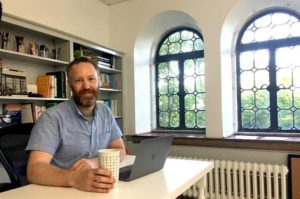 Publishing Talks began as a series of conversations with book industry professionals and folks active in media and technology, at that time, mostly talking about the future of publishing, books and culture. At the outset of this series, I was mostly interested in exploring what people were thinking about the changing economics and culture of publishing and reading.
Publishing Talks began as a series of conversations with book industry professionals and folks active in media and technology, at that time, mostly talking about the future of publishing, books and culture. At the outset of this series, I was mostly interested in exploring what people were thinking about the changing economics and culture of publishing and reading.
Now, I’ve expanded these talks to go beyond the future of publishing – in some cases, by going backwards to discuss the recent history of publishing, and in some instances, sideways into various other realms that interest me. I’ve talked with editors and publishers who have been innovators and leaders in independent publishing in the past, and into the present, and will continue to explore the ebb and flow of writing, books, and publishing in to document the cultural milieu around books, authors and publishers.
Dan Blank is an inspiring and practical thinker about books, authors and readers. We met a number of years ago, and in working with him on a project to help self publishing authors, I was impressed with his thinking and ideas for ways to help writers conceptualize marketing. I first talked to him for Publishing Talks all the way back in 2012 – you can listen to that interview here. I have continued to follow his work through his excellent email newsletter, and frequently, have been inspired by his writing, especially his view of how writers can thrive in a challenging environment. Since so much has changed in the publishing landscape over the past several years, I thought it would be valuable to talk to Dan again about his current work with writers, books, readers, and the way they are connected.
Dan did not disappoint. This interview is full of great advice for writers and anyone who is interested in connecting with audiences in today’s media-rich environment.
As Dan says about himself on his website, he “help(s) writers and creative professionals share their stories and connect with their audience.” He’s worked with hundreds of authors and many publishers as well. And he has written his own book too, making the process of writing and publishing the book part of his experience-based coaching – Be the Gateway: A Practical Guide to Sharing Your Work and Engaging an Audience.
Dan’s website, wegrowmedia.com is well worth spending some time with, and his newsletter has been a valuable source of ideas and inspiration to many.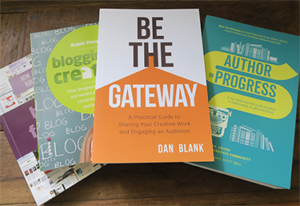
Podcast: Play in new window | Download

